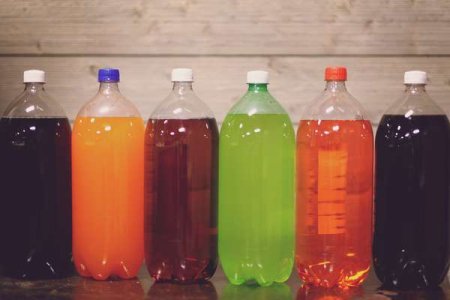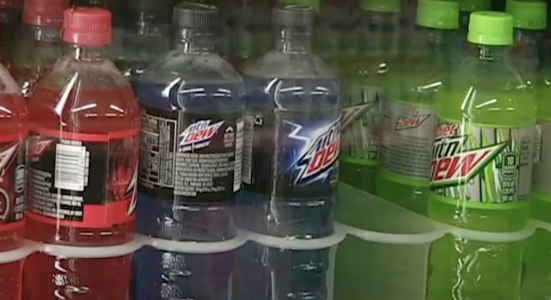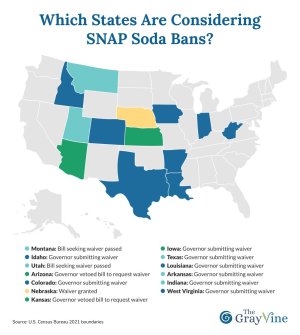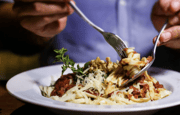Will SNAP still cover your favorite beverages? What new state proposals say
- Replies 3
If your grocery cart often includes a fizzy favorite or a quick caffeine boost, you might want to keep an eye on some quiet shifts happening in state legislatures.
One state recently made headlines for tightening rules around how certain government nutrition benefits can be used—and it may be just the beginning.
From the plains to the coasts, policymakers are stirring up a broader conversation about health, personal choice, and what kinds of items should be eligible at the checkout line. Let’s pour ourselves a tall glass of context and see what’s really going on.
Nebraska Pops the Top on a New SNAP Rule
On June 4, the US Department of Agriculture (USDA) gave Nebraska the green light to become the first state to ban SNAP purchases of soda and energy drinks.
The new rule, set to take effect January 1, 2026, will impact more than 150,000 Nebraskans who rely on SNAP to help put food on the table.
The state will also survey participants to see how their shopping habits change.
A number of other states have also submitted waiver requests that are currently under review by the USDA.

Why the Fuss Over Soda and SNAP?
Sugary drinks have long been in the crosshairs of public health experts. They’re linked to obesity, diabetes, and a host of other chronic illnesses.
Supporters of the ban argue that taxpayer dollars shouldn’t be used to subsidize products that can harm health, especially when those same dollars are meant to help low-income families eat better.
But critics see things differently. Some say this is less about health and more about policing the choices of people who use SNAP.
Others worry it’s a slippery slope—if soda is banned today, what’s next? Chips? Ice cream? And will these bans actually help people eat healthier, or just make life harder for those already struggling?
Also read: Are your SNAP benefits about to change? New legislation could impact what you can buy
Which States Are Stirring the Pot?
Nebraska may be first, but it’s not alone. Here’s a quick rundown of where other states stand:

And don’t be surprised if more states join the list. Michigan and others are already floating similar ideas.
What’s the USDA’s Role?
SNAP is a federal program, but states administer it. For a state to change what SNAP can buy, it needs a waiver from the USDA.
Nebraska’s approval is historic—it’s the first time the USDA has said yes to this kind of restriction. That means other states are watching closely, and the USDA could be fielding a lot more waiver requests in the months ahead.
Also read: Your favorite restaurants could soon accept SNAP benefits—here’s what you need to know!
The Debate: Health, Choice, and Dignity
This isn’t just about what’s in your shopping cart—it’s about values and priorities. Here’s what some key voices are saying:
Source: KETV NewsWatch 7 / Youtube.
What Could Happen Next?
With Nebraska blazing the trail, the USDA may soon approve more waivers. If that happens, millions of Americans could see new restrictions on what they can buy with SNAP.
But the debate is far from settled. Some states, like Arizona and Kansas, have already said no to similar bans, and public opinion is deeply divided.
Read next: New SNAP eligibility crackdown: Are you at risk of losing your benefits?

What do you think? Should states be able to ban soda and energy drinks from SNAP? Is this a smart move for public health, or an overreach that misses the real issues? Share your thoughts, stories, and questions in the comments below!
One state recently made headlines for tightening rules around how certain government nutrition benefits can be used—and it may be just the beginning.
From the plains to the coasts, policymakers are stirring up a broader conversation about health, personal choice, and what kinds of items should be eligible at the checkout line. Let’s pour ourselves a tall glass of context and see what’s really going on.
Nebraska Pops the Top on a New SNAP Rule
On June 4, the US Department of Agriculture (USDA) gave Nebraska the green light to become the first state to ban SNAP purchases of soda and energy drinks.
The new rule, set to take effect January 1, 2026, will impact more than 150,000 Nebraskans who rely on SNAP to help put food on the table.
The state will also survey participants to see how their shopping habits change.
A number of other states have also submitted waiver requests that are currently under review by the USDA.

Nebraska has become the first US state to ban the use of SNAP (Supplemental Nutrition Assistance Program) benefits for buying soft drink and energy drinks, with the policy approved by the USDA and set to start from January 1, 2026. Image source: Amanda Shepherd / Unsplash.
Why the Fuss Over Soda and SNAP?
Sugary drinks have long been in the crosshairs of public health experts. They’re linked to obesity, diabetes, and a host of other chronic illnesses.
Supporters of the ban argue that taxpayer dollars shouldn’t be used to subsidize products that can harm health, especially when those same dollars are meant to help low-income families eat better.
But critics see things differently. Some say this is less about health and more about policing the choices of people who use SNAP.
Others worry it’s a slippery slope—if soda is banned today, what’s next? Chips? Ice cream? And will these bans actually help people eat healthier, or just make life harder for those already struggling?
Also read: Are your SNAP benefits about to change? New legislation could impact what you can buy
Which States Are Stirring the Pot?
Nebraska may be first, but it’s not alone. Here’s a quick rundown of where other states stand:
- Arizona: Governor Katie Hobbs (D) vetoed a bill that would have restricted SNAP purchases of soda.
- Arkansas: Governor Sarah Huckabee Sanders (R) submitted a waiver request in April; it’s still pending.
- Colorado: Waiver request submitted; awaiting USDA decision.
- Idaho: Governor Brad Little (R) submitted a waiver last week.
- Indiana: Governor Mike Braun (R) submitted a waiver in April; still pending.
- Iowa: Governor Kim Reynolds (R) submitted a waiver in May.
- Kansas: Governor Laura Kelly (D) vetoed a bill seeking a waiver.
- Louisiana: Governor Jeff Landry (R) signed an executive order to request a waiver, but it’s unclear if it’s been formally submitted.
- Montana: State Senate passed a bill; House is considering it.
- Texas: Governor Greg Abbott (R) requested a waiver last week.
- Utah: Legislature passed a bill requiring a waiver request.
- West Virginia: Governor Patrick Morrisey (R) requested a waiver this week.

Several other states are also considering or have submitted waivers to introduce similar SNAP restrictions, while Arizona and Kansas have rejected such proposals. Image source: KCAU-TV Sioux City / Youtube.
And don’t be surprised if more states join the list. Michigan and others are already floating similar ideas.
What’s the USDA’s Role?
SNAP is a federal program, but states administer it. For a state to change what SNAP can buy, it needs a waiver from the USDA.
Nebraska’s approval is historic—it’s the first time the USDA has said yes to this kind of restriction. That means other states are watching closely, and the USDA could be fielding a lot more waiver requests in the months ahead.
Also read: Your favorite restaurants could soon accept SNAP benefits—here’s what you need to know!
The Debate: Health, Choice, and Dignity
This isn’t just about what’s in your shopping cart—it’s about values and priorities. Here’s what some key voices are saying:
- USDA Secretary Brooke Rollins: Called Nebraska’s move “a historic step to Make America Healthy Again,” and praised states for being “laboratories of innovation.”
- Marion Nestle, NYU Nutritionist: Warns that some of the push comes from “condescending attitudes that poor people don’t know what’s good for them,” and suspects it’s also a cover for cutting SNAP benefits.
- Dr. Ben Chrisinger, Tufts University: Argues that while Americans could eat healthier, “we have proven methods of incentivizing healthy choices without restriction.” He points out that healthy foods are often more expensive and harder to find in low-income neighborhoods.
Source: KETV NewsWatch 7 / Youtube.
What Could Happen Next?
With Nebraska blazing the trail, the USDA may soon approve more waivers. If that happens, millions of Americans could see new restrictions on what they can buy with SNAP.
But the debate is far from settled. Some states, like Arizona and Kansas, have already said no to similar bans, and public opinion is deeply divided.
Read next: New SNAP eligibility crackdown: Are you at risk of losing your benefits?
Key Takeaways
- Nebraska has become the first US state to ban the use of SNAP (Supplemental Nutrition Assistance Program) benefits for buying soft drink and energy drinks, with the policy approved by the USDA and set to start from January 1, 2026.
- Several other states—including Arkansas, Colorado, Idaho, Indiana, Iowa, Louisiana, Montana, Texas, Utah and West Virginia—are also considering or have submitted waivers to introduce similar SNAP restrictions, while Arizona and Kansas have rejected such proposals.
- Supporters of these bans argue that restricting the purchase of sugary drinks with government food aid could help cut rates of obesity and other health issues, but critics say the policy may not address food insecurity and could be a way to reduce benefits.
- The USDA is likely to continue considering and possibly approving more state waivers, as debate continues about whether limiting SNAP benefits on soft drink is effective or fair.
What do you think? Should states be able to ban soda and energy drinks from SNAP? Is this a smart move for public health, or an overreach that misses the real issues? Share your thoughts, stories, and questions in the comments below!
Last edited:







